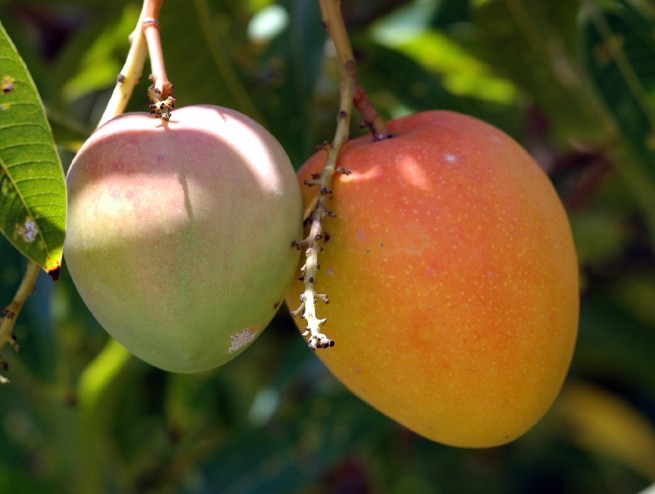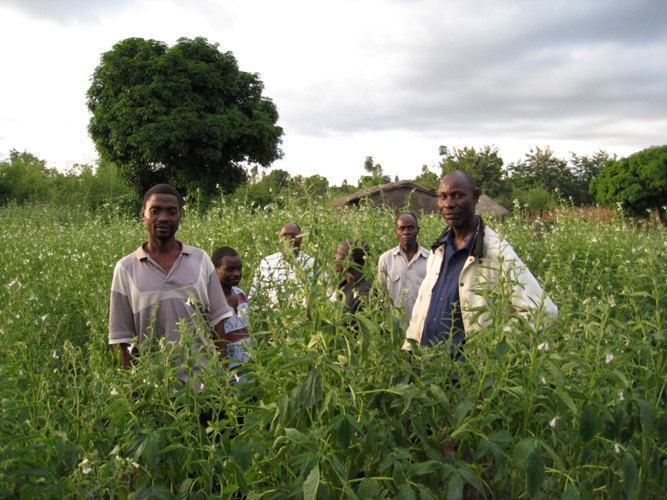FMO, IFC, a member of the World Bank Group, and the Private Sector Window of the Global Agriculture and Food Security Program (GAFSP) will each invest $5 million in Malawi Mangoes to support expansion of its tropical fruit production and processing operations.
On final certification, expected in the coming months, Malawi Mangoes will be the first ever banana plantation in Africa to receive Rainforest Alliance accreditation and the first mango plantation in the World to receive this accreditation. The organization plans to scale up operations and exports, bringing more rural jobs and increasing opportunities for farmers to supply fruit to the company through its smallholder outreach and development programs.
The overall $15 million financing package will fund capital investment plans, including an expanded nursery, a new 1,200 hectare plantation, installation of climate-smart drip irrigation technology across the new farm and nursery, as well as expanded ripening chamber capacity and a second processing line at the processing facility.
Jonathan Jacobs and Craig Hardie, joint Founders and Managing Directors of Malawi Mangoes said, “Malawi only needs investment and access to markets to become a regional leader in high-value horticultural production and processing. This investment by IFC and FMO, combined with the empowerment of local people, puts us on the path to our goal of becoming the leading agro-processing company on the African continent over the next five years”.
German Vegarra, IFC’s Regional Head of Manufacturing, Agribusiness and Services said, “Malawi is one of the poorest countries in the world, and 80 percent of its citizens live in rural areas. Sustainable agribusiness is an opportunity for developing countries to diversify exports, generate foreign exchange, transfer core skills, create jobs, and reduce poverty”.
Linda Broekhuizen, FMO’s Chief Investment Officer said, “With this new investment Malawi Mangoes can start benefiting from economies of scale while at the same time empowering local people thus having a tremendous positive impact on the local rural employment in the Salima District of Malawi”.
Expanding middle classes in developing countries are boosting demand for fruit juices and drinks. Malawi Mangos aims to meet this demand by increasing sustainable production and processing. The company plans to increase employees fourfold over the next four years to about 2,600 full time staff. During this time, it also plans to increase the number of farmers who supply fruit to the company to approximately 6,000. It will continue to apply for Rain Forest Alliance certification for all of its plantations going forward. Helping small farmers gain access to finance, agricultural inputs like seeds, and improved infrastructure is part of IFC’s strategy for improving food security and rural incomes. IFC made a record $4.5 billion worth of agriculture-related investments in fiscal year 2013.
Donor partners to the Private Sector Window of GAFSP are the governments of Canada, Japan, the Netherlands, the U.K. and the U.S. This funding makes it possible for IFC to invest in riskier projects with strong potential to promote food security and reduce poverty.
About GAFSP
GAFSP is a global effort to aid vulnerable populations afflicted by hunger and poverty. It takes up where emergency and recovery assistance leaves off, targeting transformative and lasting change in agriculture and food security within poor countries. Following commitments by G-8 leaders at the L’Aquila Summit in July 2009 and reaffirmed by the G-20 Summit in Pittsburgh in September 2009, GAFSP was established in April 2010. IFC manages the GAFSP private sector window and IBRD manages the public sector part of the program. For more information, visithttp://www.gafspfund.org.
About FMO
FMO (the Netherlands Development Finance Company) is the Dutch development bank. FMO supports sustainable private sector growth in developing and emerging markets by investing in ambitious entrepreneurs. FMO believes a strong private sector leads to economic and social development, empowering people to employ their skills and improve their quality of life. FMO focuses on three sectors that have high development impact: financial institutions, energy, and agribusiness, food & water. With an investment portfolio of EUR 6.6 billion, FMO is one of the largest European bilateral private sector development banks. www.fmo.nl
About IFC
IFC, a member of the World Bank Group, is the largest global development institution focused exclusively on the private sector. Working with private enterprises in more than 100 countries, we use our capital, expertise, and influence to help eliminate extreme poverty and promote shared prosperity. In FY13, our investments climbed to an all-time high of nearly $25 billion, leveraging the power of the private sector to create jobs and tackle the world’s most pressing development challenges. For more information, visit www.ifc.org
About Malawi Mangoes
Malawi Mangoes was founded in 2009 by Mr. Jonathan Jacobs and Mr. Craig Hardie from the realisation that Malawi has some of the best conditions in the world for growing tropical fruit together with resourceful, hard-working people looking for the opportunity to be self-sufficient, but who haven’t had the means to tap into export markets. Malawi Mangoes, headquartered in the Salima District of Malawi, produces and markets mango and banana not from concentrate fruit puree and fresh fruits primarily for export markets in Africa, the Middle East and Europe.




